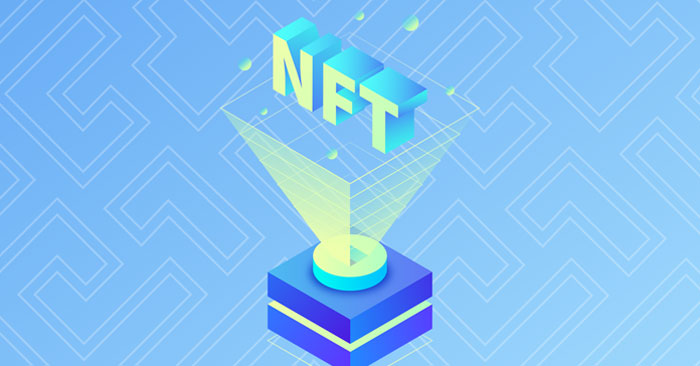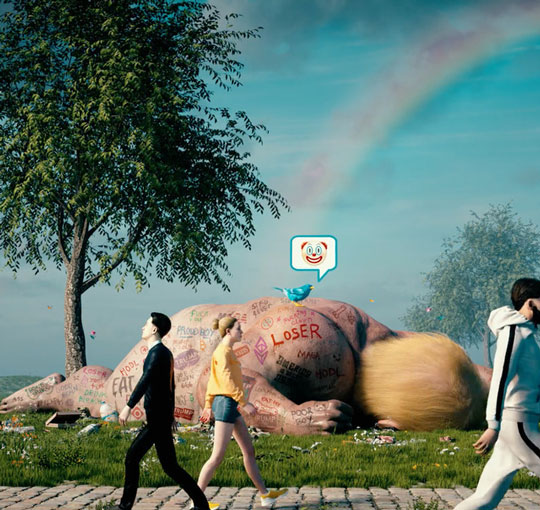What is an NFT and why are NFTs so expensive?
Read the article below to find out why people spend so much money to buy NFTs.
What is NFT?
NFT is an abbreviation for 'Non-fungible token', which is a unique cryptocurrency. NFTs often represent a digital asset authenticated by blockchain technology, with the digital signature of the owner.

Outstanding features of NFT
Indivisible : NFT is an intact asset that cannot be divided into smaller pieces. Unlike cryptocurrencies like Bitcoin or Ether, which can be divided and traded in fractions.
Indestructible and Non-Replicable : Each NFT is unique. All NFT data is stored on the blockchain platform via smart contracts, independent of any company.
Digital artworks bought and sold as NFTs will always be original, unique, and there will be no second copies.
Verifiable : By storing ownership data on the blockchain, there is no need for a third party or expert to authenticate it, and anyone can trace back to the creator of the work.

Where are NFTs stored?
Since an NFT is a cryptographic token, it can be stored on a digital blockchain, just like cryptocurrency transactions. Blockchains are inherently secure, as they use immutable distributed ledgers (or distributed ledger technology) that anyone on the network can view. This makes blockchains very difficult to tamper with.
When you purchase an NFT, you will be provided with a private key that you can store in a digital wallet (as long as the wallet supports NFTs). This private key is required to access and transfer your NFT, and must be kept secret at all times. If you lose your private key, you will no longer be able to access your NFT, which can lead to significant financial loss.
Why are NFTs so valuable and expensive?
Because each item is unique, NFTs have great collectible value. Additionally, gamers and investors can make money through NFTs by selling items in-game, in virtual casinos like The Sandbox.
For example, one investor bought the F1 Delta Time track as an NFT, which will earn him a 5% dividend on races on the track, including entry tickets. Or a gamer made $80,000 selling a bunch of land in Decentraland.
When sold, works in the form of NFT do not need to go through a third party (such as an auction house, gallery, etc.). This will help artists save a significant portion of their profits and each time the work is transferred to a new owner, they will receive royalties.
Risks from NFTs
NFT transaction fees are very high, to transfer ownership of an NFT from creator to buyer costs 50USD.
Every transaction like creating NFTs, bidding, transferring ownership on virtual marketplaces like Rarible or OpenSea costs users a large amount of money and creates huge carbon emissions.
Some critics argue that NFTs are a short-lived investment fad (2-3 years) similar to the ICO bubble burst in 2017.
Nadya Ivanova - CEO of L'Atelier shared that the NFT market is still very new and risky, it needs to go through many different cycles to establish their real value.
How to keep your NFTs safe
There are a few things you can do to reduce the risk of having your NFTs stolen, the first of which is to use two-factor authentication for your account. For example, if you have an OpenSea account, make sure you use two-factor authentication so that hackers can't directly access your account without verification from another source, such as email or text.
Also, if you want to click on any kind of link in this case, you should first use a link checker website, which will tell you whether the website is legitimate or not. Most phishing scams take place through fake links, so using a link checker tool can be extremely effective.
You should also check any accounts that send you messages with Airdrops or NFT giveaways. If the account owner claims to be a major NFT artist but only has a handful of followers, chances are they aren't who you think they are. You can also report these fake accounts to Twitter and have them removed from the platform.
Finally, make sure you always store your private keys and seed phrases super securely, as they provide the gateway to your NFT. You can use a digital wallet to store your NFTs, but many of them are connected to the internet, making them easier to hack.
Therefore, we recommend using an offline wallet or seed phrase capsule to store this sensitive data. Alternatively, you can simply write them down on paper or store them on a hard drive, but you need to make sure they are always in a safe location.
You should read it
- ★ How to draw a mysterious, attractive mask for Halloween night
- ★ How to use Bitdefender TrafficLight to check web safely on Firefox
- ★ What is the error of the air conditioner flashing continuously?
- ★ HP began selling ultra-thin Pavilion dv2 and dv3
- ★ 10 tips for programmers to have a successful resume